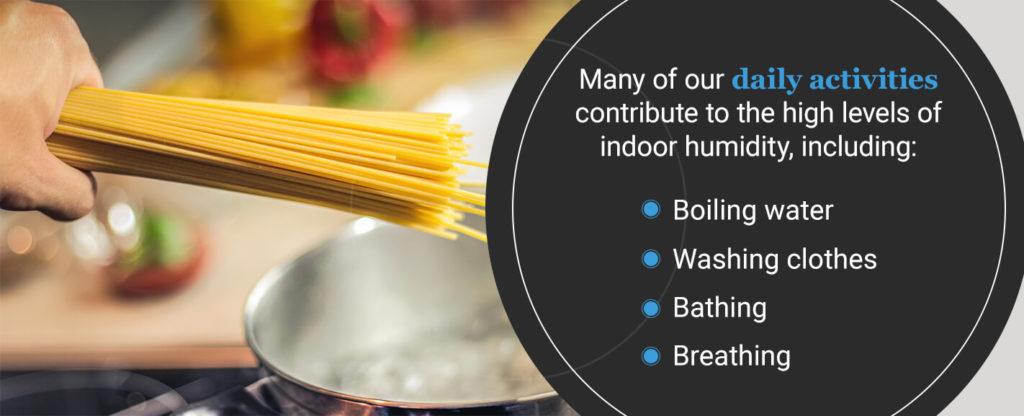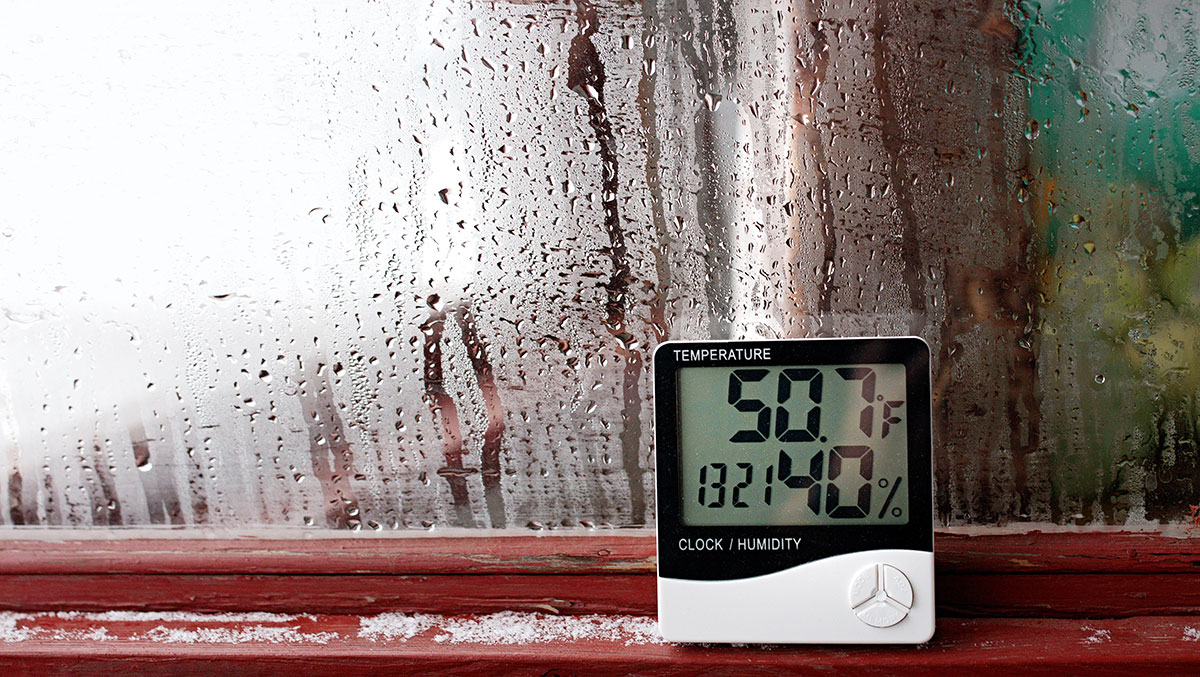Living in New Jersey, we are all accustomed to the humidity and the heavy feeling that surrounds us each time we step outside in the Summer. While it is barely Spring here, the do days of Summer are right around the corner. Humidity can have surprisingly harmful effects on your home and your health when it starts to invade your living space.
We’re often unaware of this excess moisture buildup in our homes and don’t realize what’s happening until we experience the uncomfortable, sticky feeling that accompanies high humidity indoors. Humidity can cause damage to your home, lessen the effectiveness of your heating, ventilation and air conditioning (HVAC) unit and even contribute to harmful health effects. Staying on top of the problem and controlling moisture buildup can make a huge difference in the integrity of your home and the quality of your health.
HOW TO TELL IF YOUR HOUSE IS EXCESSIVELY HUMID
Many of us don’t notice humidity until it becomes a bigger problem. Our skin gets clammy, and the air seems to feel heavier. It becomes a problem when humidity follows us inside and starts to damage our homes and our health.
High indoor humidity comes with its own telltale signs and symptoms, many of which are easily identifiable. Here’s what to look for when determining whether humidity has become excessive in your home:
- Condensation buildup: In a humid environment, moisture starts to buildup on various surfaces. Windows and mirrors will show fog, and water droplets can be found on any exposed pipes. If you find signs of condensation, be sure to check the surrounding areas to see if condensation is spreading to other surfaces.
- Peeling paint and creaky floorboards: Look for peeling paint on your walls or wooden floorboards that creak under your weight. Often, this is a sign that humidity has potentially infiltrated these materials and is causing damage to your home.
- Rotting: Other wooden fixtures in your home, such as furniture, windowsills and doors, may start to rot.
- Moisture damage on other surfaces: Other surfaces can start to show signs of excessive humidity as well, such as walls or shelves. Check to see if these spots feel moist or softer than usual. Any condensation buildup in these locations is typically a sign of excessive humidity in your home.
- Mold or mildew: High humidity in your house can be a breeding ground for bacteria, as they thrive in warm, wet environments. Mold can grow in various places, such as the corner of ceilings, under carpets and on walls behind furniture. Mold and mildew often come with their own smell as well, sometimes leaving a musty scent in the air. We are all accustomed to the smell of our own homes, so leaving your house for a little while and coming back is the best way to check for the smell.
- Health effects and symptoms: With mold and mildew comes a slew of health problems. Look for frequent, severe headaches, allergy symptoms, coughing or shortness of breath. If these symptoms are affecting any member of your household, then humidity may be the culprit.
Alone, just one of these problems might not mean that humidity is excessive in your home. However, if you are experiencing more than one of these problems, finding ways to manage the humidity and getting your home checked out by a professional is best.
WHAT CAUSES HIGH HUMIDITY IN A HOUSE?
Humidity can creep up on us before we even realize it’s happening, especially living in New Jersey in the Summer. We are already so accustomed to the high humidity levels that we don’t always notice a difference in our living environment. If your home feels humid or spot any of the signs of a highly humid environment, determine the cause of the issue so that you can implement home humidity control as soon as possible.

Identifying the cause can remedy the numerous issues that come with high levels of humidity in a home. Believe it or not, many of our daily activities contribute to the high levels of indoor humidity. These activities include boiling water, washing clothes, bathing and breathing, which are just a few of the main sources of humidity in the home.
There are other causes of high humidity beyond the things we do daily as human beings. This can be water leakage from pipes or faulty showerheads and drippy sink faucets. Certain construction materials can be at fault as well. Newly installed construction materials, such as wood, insulation and plaster, can release humidity if they have retained any moisture.
Damp ground conditions that invade the spaces under or around your home also contribute to the humidity you experience in your home. Certain materials, such as timber, soak up the moisture from the ground and trap it. The wood can release this moisture into your home, adding excessive humidity to the environment.
New Jersey, in particular, has higher rates of humidity than other states due to its location close to the water. N The air-conditioning units we have also play a part in the level of humidity we experience. A faulty or incorrectly sized unit may turn on and off too quickly, not giving your unit enough time to circulate the humidity through its system. This traps the humidity in your house.
Identifying the cause is key to resolving the humidity issue as soon as possible. This can reduce the cost of repairs on your house and benefit your health as well. It’s time to live comfortably and find ways to reduce the amount of moisture buildup in your home. Contact East Coast Mechanical today to assesss your cooling needs as we go into the Summer season.

